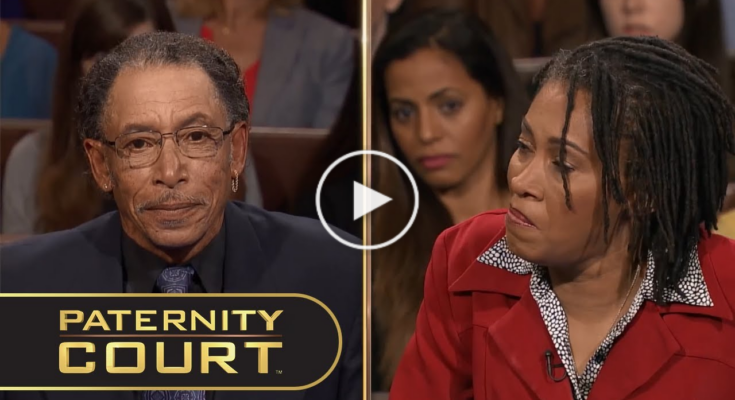Paternity disputes can deeply affect families, leading to long-held secrets and emotional turmoil. In the case of Feagin v. Pinkston, a 43-year-old paternity dispute surfaces, unraveling the pain and consequences of withheld truths. This scientific article explores the significance of DNA testing in resolving such disputes and the emotional impact on the individuals involved.
“Something I really don’t want part of.” – Tonia Pinkston
Ms. Pinkston expresses her disapproval of the long-hidden secret, feeling that it should have remained undisclosed. She believes that her parents’ private affairs should not have been revealed, especially after her father’s passing. However, she admits to overhearing discussions about her true paternity as a young child but chose to ignore them. The revelation has had a lasting effect on her emotional well-being.
“It just hurts. Did you ever overhear anything?” – Judge Lake “Yeah, as a young kid, you know, when grown-ups doing grown-up things.” – Tonia Pinkston
“I lost my brother, too, near two years ago.” – Melissa Pinkston
The emotional distress resulting from the paternity dispute is evident in Ms. Pinkston’s relationship with her sister and Mr. Feagin. She feels deeply hurt and disrespectful towards her deceased father and her mother, as the truth was revealed only after his passing. The family dynamics have changed dramatically, causing distress among the relatives and affecting their connections.
“I agreed. She was married… I agreed.” – Mr. Feagin
Mr. Feagin’s emotional testimony reveals the silent sacrifice he made by not acknowledging his biological daughter due to the secrecy agreement with Ms. Pinkston’s mother. His inability to reveal the truth deeply affected him emotionally, despite his love for Ms. Pinkston. The burden of the secret weighed heavily on him throughout the years.
“I felt like if they had enough… Well, to tell me about it, how come they didn’t just let everything out the bag and everybody sit down and everybody talk about it.” – Ms. Pinkston
“In my heart, I know she’s mine.” – Mr. Feagin
DNA testing plays a crucial role in resolving the paternity dispute once and for all. The court’s decision to conduct the test signifies the potential power of DNA technology in settling such disputes impartially. The revelation of the test results brings clarity to the situation, providing closure to the individuals involved.
“The only way we can figure out how to move forward is to get the results.” – Judge Lake
“This is something I can’t believe.” – Tonia Pinkston
The court’s disclosure that Mr. Feagin is not Ms. Pinkston’s biological father leaves her devastated. Despite the heartbreak, Ms. Pinkston acknowledges the importance of knowing the truth. The news is equally shocking for Mr. Feagin, who always believed he was the biological father. The revelation brings an end to decades of doubt, uncertainty, and confusion.
Despite the painful truth, the court emphasizes the importance of family beyond biological ties. Both Mr. Feagin and Ms. Pinkston are encouraged to continue their relationship and seek counseling and support. The court hopes that they will find solace in knowing the truth and can rebuild their connections with newfound clarity.
Conclusion: The case of Feagin v. Pinkston demonstrates the significant emotional impact of paternity disputes and hidden secrets on families. The application of DNA testing provides an unbiased resolution to the long-standing mystery, ultimately offering closure to the individuals involved. The court’s emphasis on family unity and emotional support reinforces the importance of open communication and transparency within families. Through DNA testing, individuals can gain clarity and understanding, fostering a path towards healing and reconciliation. The case highlights the transformative potential of DNA technology in settling paternity disputes, bringing families closer together with the power of truth.



